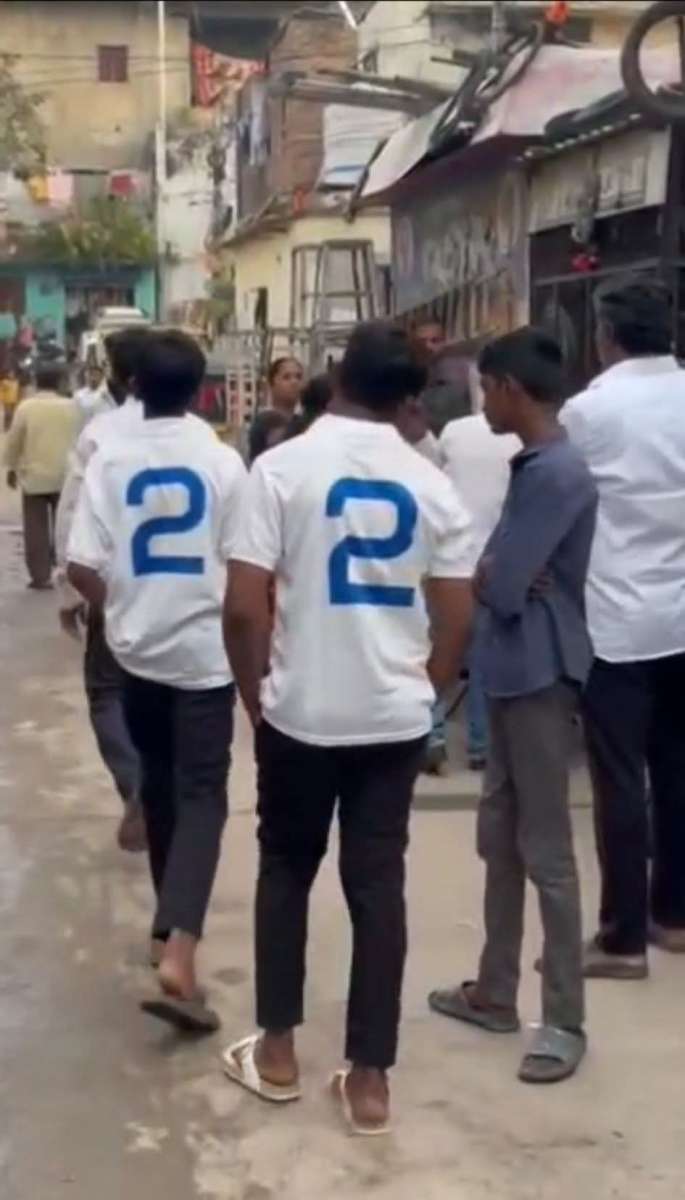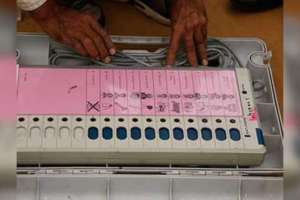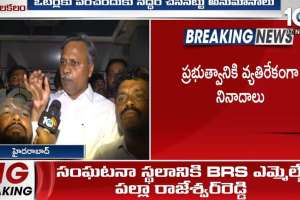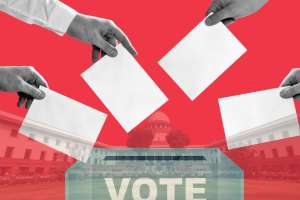Election authorities caution young people about severe consequences under new BNS provisions
Hyderabad, November 11, 2025 – As elections unfold across the country, authorities are warning young people about the severe and life-altering consequences of participating in illegal activities during polling, cautioning that what may seem like easy money or “cool” behavior can permanently damage their careers and future prospects.
Election officials and legal experts say that many youth are unaware of the serious legal ramifications they face when politicians or party workers recruit them for electoral malpractices, often for small monetary compensation.
The Dangerous Allure of Quick Money
Young people, particularly college students and unemployed youth, are increasingly being approached by political operatives to engage in activities such as:
- Distributing cash to voters
- Transporting illegal materials during the election period
- Booth capturing or creating disturbances at polling stations
- Impersonation or proxy voting
- Intimidating voters or election officials
- Destroying or tampering with election materials
- Recording videos inside polling booths
“For a few thousand rupees, these young people think it’s a quick way to make money without realizing they’re committing serious criminal offenses,” explains advocate Ramesh Kumar, who specializes in election law.
Politicians Misuse and Abandon
The harsh reality, according to election observers, is that politicians and party workers exploit youth for their electoral gains but abandon them when legal troubles arise.
“Party leaders promise protection and support, but the moment police cases are filed, these youth are left to fend for themselves. The politicians escape while the youth face the consequences alone,” says social activist Priya Sharma.
Many young people discover too late that the political connections that recruited them offer no real protection when arrests are made or charges are filed.
Severe Consequences Under New BNS
Under the Bharatiya Nyaya Sanhita (BNS) 2023, which replaced the Indian Penal Code, electoral offenses carry stringent penalties:
For Bribery and Treating (Section 171B & 171E BNS):
- Imprisonment up to 1 year or fine, or both
- Permanent criminal record
For Undue Influence and Intimidation (Section 171C BNS):
- Imprisonment up to 1 year or fine, or both
For Impersonation at Elections (Section 171F BNS):
- Imprisonment up to 1 year, or fine, or both
For Booth Capturing or Violence:
- Imprisonment up to 2 years and fine
- In severe cases, charges under rioting and assault provisions can lead to imprisonment up to 5-7 years
For False Information or Electoral Fraud:
- Imprisonment up to 2 years and substantial fines
For Violation of Section 144 (Unlawful Assembly):
- Imprisonment up to 6 months or fine, or both
Additionally, under the Representation of the People Act, 1951:
- Convicted individuals are disqualified from voting for 6 years from the date of conviction
- Disqualified from contesting elections
- Permanent criminal record affecting government job prospects
Digital Evidence: No Escape
In today’s era of smartphones and CCTV cameras, every illegal act gets recorded. Election officials warn that:
- Videos circulating on social media become permanent evidence
- CCTV footage from polling stations is preserved
- Mobile phone records and digital transactions are traceable
- Photographs and videos can be used in court even years later
“Young people need to understand that in the digital age, nothing disappears. A video of you distributing money or creating trouble at a polling booth will haunt you for life,” warns cyber law expert Dr. Venkat Rao.
Career Destruction
The consequences extend far beyond legal penalties:
Government Jobs: Any criminal conviction, especially election-related offenses, results in automatic disqualification from government employment, including positions in:
- Police forces
- Civil services
- Public Sector Undertakings (PSUs)
- Teaching positions
- Banking sector
Private Sector: Many multinational companies and reputed organizations conduct background verification checks that reveal criminal records, leading to:
- Job offer rejections
- Termination if already employed
- Blocked promotions
Higher Education: Some universities and foreign institutions deny admissions to candidates with criminal records
Visa Applications: Criminal records can lead to visa rejections for education, employment, or travel abroad
Social Stigma: The permanent mark on one’s reputation affects personal and professional relationships
Real Cases, Real Consequences
Election Commission records show numerous cases where young people’s lives were derailed:
A 23-year-old engineering graduate in Telangana was arrested in 2023 for distributing cash during elections. His government job offer was revoked, and he now struggles to find employment despite his qualifications.
A college student caught on camera inside a polling booth creating disturbances faces a two-year imprisonment sentence and has been expelled from his institution.
Multiple youth arrested for booth capturing in various states now have permanent criminal records preventing them from pursuing their desired careers.
Why Youth Fall Into the Trap
Experts identify several factors that make youth vulnerable:
- Financial desperation or desire for quick money
- Peer pressure and perceived “coolness”
- Lack of awareness about legal consequences
- False promises of protection by political operators
- Underestimation of law enforcement capabilities
- Naivety about the permanence of criminal records
What Parents and Educators Must Do
Social workers and educators emphasize the need for:
- Open conversations with young people about election laws
- Awareness campaigns in colleges and communities
- Warning about political exploitation and false promises
- Emphasis on long-term consequences over short-term gains
- Encouraging legitimate political participation instead
Election Commission’s Warning
The Election Commission of India has issued clear warnings:
“Any person found engaging in illegal activities during elections will face the full force of law. We have zero tolerance for electoral malpractices, and age or ignorance will not be accepted as an excuse. Young people must understand that no amount of money is worth destroying their future.”
The Right Way to Participate
Authorities encourage youth to engage in the democratic process legally:
- Vote responsibly and encourage others to vote
- Join political parties officially if interested in politics
- Volunteer legally for campaign activities like door-to-door outreach
- Report illegal activities to election authorities
- Use social media responsibly to promote voter awareness
A Clear Message
The message to youth is unambiguous: Politicians will use you and abandon you. The law will catch up with you. Your career will be destroyed. No amount of money is worth it.
With digital evidence everywhere, stricter laws under BNS, and increased surveillance, the chances of getting caught are higher than ever. More importantly, even a single mistake can permanently derail a promising future.
As one election official bluntly states: “Five minutes of poor judgment for five thousand rupees can cost you fifty years of regret. Choose wisely.”
If You’re Approached
If political workers approach you for illegal activities:
- Firmly refuse the offer
- Report to election helpline: 1950
- Inform parents or teachers
- Document the approach if possible
- Remember: Your future is more valuable than any temporary payment
The Bottom Line
In an age of permanent digital records, stringent new laws, and rigorous background checks, participating in illegal election activities is not just risky—it’s career suicide. Young people must understand that politicians who recruit them for illegal work will disappear when trouble comes, leaving them to face life-altering consequences alone.
Your vote is your power. Your future is your responsibility. Don’t let anyone exploit your youth for their political gains.






